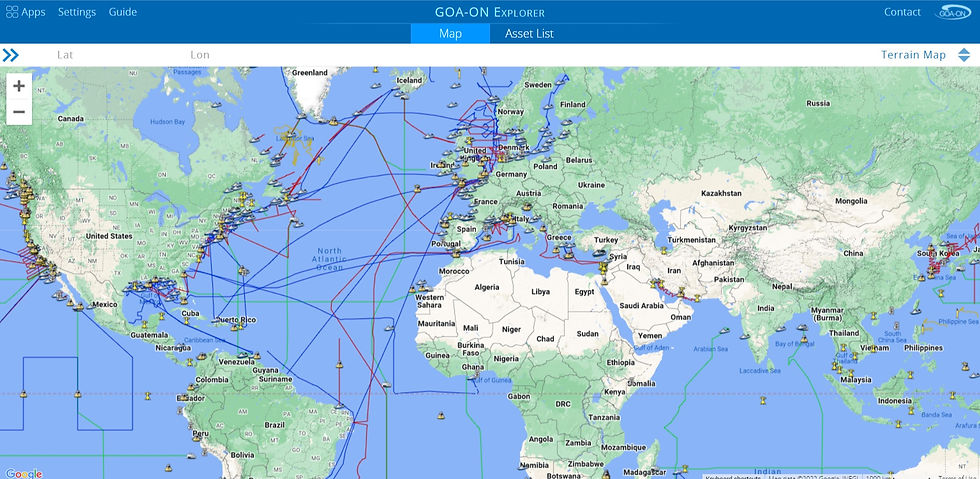International Resource Highlights
- Austin Pugh

- Oct 20, 2022
- 2 min read
Updated: Dec 12, 2024
Between the 10th-16th of September 2022, the OA CoP attended the 5th International Symposium of the Oceans in a High CO2 World. Over the course of the Symposium and side works shops, we learned about some amazing and often underutilized resources created by the global OA community which we would like to share with you.
GOA-ON Data Explorer:
The GOA-ON data portal "provides access and visualization to ocean acidification data and data synthesis products being collected around the world from a wide range of sources, including moorings, research cruises, and fixed time series stations" and represents them as an easy-to-use map. The map contains worldwide (and in some cases also real-time!) data and observation assets which are represented as interactive icons.
The data explorer map can be found by clicking here!
Is the data portal missing something? Add to the database and ensure your work is properly featured in this amazing research by filling out a quick survey by clicking here.
We strongly encourage our members to spend some time exploring this map as it could lead to many future opportunities!
OA-ICC Zotero Database:
The OA-ICC has created a bibliographic database of ocean acidification publications which is updated frequently. This database is shared through Zotero (a free open-source reference management software), and is easily searchable as explained in the user instructions (here) or after watching the short instructional YouTube video (here). The end result is a relevant comprehensive bibliography on a topic related to ocean acidification.
To get started creating your bibliographies and literature searches with this database click here to access the main website!
OA-ICC Biological Response Portal:
This easy-to-use data repository and publication catalog focuses on biological response to ocean acidification. The goal of this data compilation is "to ensure the archival and streamlining of data on the biological response to ocean acidification (and other environmental drivers), as well as to provide easy access to the data for all users". This resource allows you to easily search existing datasets through easy-to-use filters under the categories of Spatial information, Experimental information, Biological information, and Bibliographic information (as can be seen in the image below).

This is an incredible resource to use to understand the biological response data that is available worldwide. To visit the portal and begin exploring click here and explore the various tabs along the top of the webpage to get started. Don't forget to contribute on the home page if your dataset is missing!
GOA-ON's Pier2Peer Partnerships:
The Pier2Peer program creates professional partnerships and relationships that are designed to help both early career scientists and senior scientists learn new skills and grow their field of study. Pier2Peer partnerships contain 1 mentor and 1 mentee who are matched based on knowledge and interest, who work together to create international collaborations and projects.
To learn more about the Pier2Peer network or to sign up as a mentor or a mentee click here!
Did you learn about any helpful resources that everyone should know about? Comment them below!




Comments